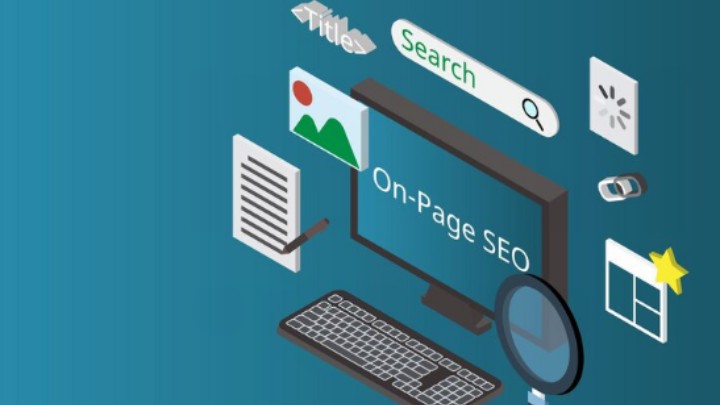
Every blogger wants their blog to rank at the top of the search engine pages, right? However, some bloggers struggle with it as they don’t know how to optimize a blog as per webmaster guidelines. If you are a beginner-level blogger who doesn’t know how to make it work then stay with us.
In this article, we will discuss the 5 most effective tips that will help to optimize your blog for Search Engines (Google, Bing, Baidu, Yandex, DuckDuckGo and more) and rank higher in SERPs. If you follow these rigorously, you can achieve results sooner than expected.
1. Customize it before starting out
Once you set up your blog, you need to configure and customize it. This process takes place within a blog that is created by the webmaster as a way to describe the website to the search engine. You need to specify information such as the website name, tagline, logo, and niche. As part of all that, you also need to customize the front page with relevant information and a good color scheme.
Further, you are required to highlight what types of categories and information will be uploaded and if you are an individual blogger or an organization. Keep in mind that information like social media captions, short bio or tagline, gravatar and other information should also be specified during the website configuration.
Once you are done with all this, the search engine will be able to determine what type of blog you are starting out and then focus on indexing its posts accordingly.
2. Make an effective Content Strategy
Creating a blog isn’t a hard thing but working on it with consistency is. To make things smooth it’s best to write the articles for blog posts in advance and schedule them in advance and keep yourself always one step ahead.
It can even work better when you have more than 50 articles written in advance and you are publishing about 3 articles per day to keep your audience engaged and connected.
It is best to write articles on the same topics but on different titles. Articles with similar topics on a regular basis can help you rank better on the search engines. Such planned content strategy significantly boosts your blog’s topical relevance that’s a must-have for quick and higher rankings.
3. Pay special attention to On-page SEO
When you’re done writing articles for the blog, you need to optimize them for search engines.
When optimizing a blog post, you need to know for what keywords you are optimizing it. It means you should determine what keyword you want to rank on. For this, you need to do keyword research. You must find relevant and right keywords for each blog post. Find the keywords and place them in the content as per an effective strategy.
After keywords, you can move on to the next step which is meta tags optimization. Meta tags specify the content that is displayed when your blog link appears on the search engine result pages. You must create a catchy, keyword-enriched and brief metadata for each blog post.
Here’s a tip for you. To optimize the Meta title and description, it is important to add the complete keyword in them. It will be even better if you add the keyword at the beginning of the title and somewhere between the description. For some blog posts optimizing meta tags isn’t enough. It is important to optimize the headings also. Adding keywords in more than 70% of headings significantly helps to optimize a blog post on the target keywords.
All this process helps to optimize content for keywords which is not enough for ranking. There are many other aspects of on-page that you must consider such as internal linking. You shouldn’t forget to add at least one internal link in each blog post.
Moreover, while optimizing the blog post it is also important to take care of the quality of your content. To maintain the quality of your content you can check the grammar and spelling mistakes on your own. Most importantly, you need to use a plagiarism checker to confirm that your content is unique. This is important because the quality of the content can really affect the optimization and ranking of your blog post on search engines.

4. Take advantage of Schema Markup
Schema Markup is a type of code that is usually available in JSON language. In this code, you can specify the type of your content. Whether it is a product, service, organization, or article, create a schema and let the search engine know it. It is one of the best techniques to optimize your blog for Search Engines.
This is most important if you want to rank your blog on SERPs. You can highlight everything about your blog post in the schema. Once you add the type to it, you can mention further information like author, blog title, description, and more.
Moreover, using schema markup, you can include various elements to your SERP snippets such as FAQs, tables, and knowledge graphs to provide more information about your blog post. Every schema markup asks for different information as the product schema asks for product price, product reviews, and product size. While schema markup for services asks for packages and prices.
Adding a schema markup in your blog is quite simple, especially in WordPress. In WordPress CMS, you can install a schema markup plugin and add a custom schema in it. You can use schema.org to generate schemas and if required then verify your schema code using a schema validator.
5. Don’t forget to send indexing requests
Once you create a blog to share information with your audience, your next step should be connecting with the Google Search Console.
The Google Search Console lets you know information like how many clicks are there on your blog posts and from which keywords you are getting more traffic. The other things you can do in the Google Search console includes updating the sitemap, sending indexing URL requests, and learning about crawlability issues.
It lets you know which page is indexed on the search engine so you can resend the request for indexing to the search engine. Using the search console can also help you find information including how many backlinks there are so you can disavow those backlinks which are harmful for your blog or seem spammy to the search engine.

Bottom line
We hope that our top 5 proven tips and tricks of optimize your blog for Search Engines will help it to rank higher on SERPs. It’s a long process. So, make a proper content calendar and stick to it for better results. Don’t forget to keep checking your DA, PA and various other parameters to check your success journey.
